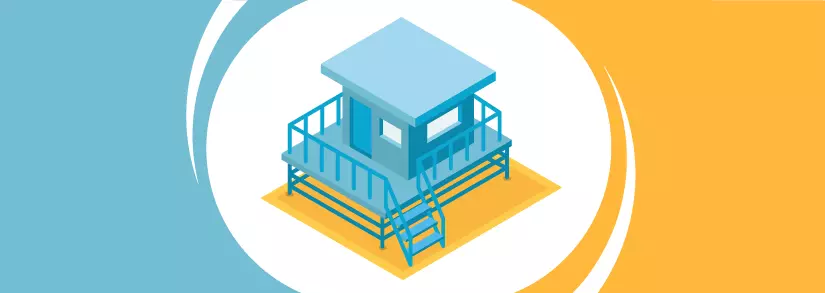How to Write a French CV

Want to subscribe to a French energy offer?
Our English-speaking Selectra advisors are here to help you find the right energy plan.
(foreign IBANs accepted) at [email protected]. You can contact us also:

If you’ve moved to France and are thinking of submitting a job application in France, your usual CV might not cut it. There are a few things you’ll need to include that are specific to the French job market and may not be as typical in your native country. But don’t worry! We’ve got everything you need to know.
Here’s our guide on how to write a French CV.
Do I have to write my CV en français?

Yes, unless it is requested in English. Just translating your original CV into French may seem like a good option, but be aware that some words or phrases might not come across the same way in French as they do in English or another language. It’s worth it to take the time to revamp your CV into a rough French CV template, in order to get the most responses possible from French employers.
Make sure to get a native French speaker to look it all over once you’re translated and/or revamped it. They’ll be able to spot any spelling or grammatical errors that you may have missed. If you don’t know a native French speaker, reach out to some expat groups on Facebook. There are many people who are in the same boat as you, and members of these groups are often more than happy to help you out.
If you’re applying for a job that requires fluency in another language such as English, consider sending a CV in that language as well.
French Résumé vs French CVIn French, un résumé means “a summary,” whereas a CV stands for “curriculum vitae.” The latter is the one you’ll be presenting to employers.
What do I need to include on a French CV?
We recognize that every person is different and so every CV will be different. There is no “right way” to create a French CV, and you can move and alter the sections of your CV to your desire.
But there are definitely a few things you need to include on a CV in France, and those can be found below with their French translations. Some of these may be a surprise to you or feel very personal. However, in France this information is important and normal.
Personal information (situation personnelle)
Here are a few things you would typically include at the top of your CV:

- Last name (nom de famille): remember to put this in capital letters
- First name (prénom), which goes after your nom de famille
- Nationality (nationalité)
- Age (âge)
- Marital status (situation de famille): single (célibataire), married (marié(e)), PACSed (pacsé), divorced (divorcé(e)), widowed (veuf/veuve)
- Phone number (numéro de téléphone): work phone (bureau), home phone (domicile), mobile phone (portable)
- Address (adresse)
- Email address (adresse e-mail or courriel)
If you possess EU citizenship or are a dual-EU citizen with your home country, make sure to mention it close to the top. If you aren’t EU, mention if you have a French work permit or not.
You’ll also need a passport-sized photo of yourself. Make sure this is a professionally taken photo and not a selfie.
Career objective (projet professionnel/objectif)
You’ll need to include a brief and precise description of your skills and/or what you will bring to the job/company. This can also include short-term career goals.
Education (formation) and work experience (expérience professionnelle)

You should list the name and location of the schools you attended, the dates you were a student and the degree or certification you earned. List only the highest diplomas. Try to find the French equivalent of your certifications.
Your work experience should either be listed chronologically, starting from the last job you had, or separated into subject/theme. List the name and location of the companies you worked for, the dates you were an employee, your job title, and a description of your daily responsibilities. Feel free to add any notable achievements.
You don’t necessarily have to include your entire job history. Just choose what you feel is most relevant to the position you’re applying for.
Specific skills (compétences spécifiques)
List here any skills that you have. These could range from language skills to computer skills to whether you have a drivers’ licence.
Your skill level can be assessed on a scale between langue maternelle (a native-level fluency) to notions (basic). You may be intermediate and have a good mastery of the language (maîtrise convenable) or fluent (courant). If you’re taking any French classes, mention that as well. Don’t try to pretend you know more French than you actually do -- you’ll likely be tested in the interview.
In terms of computer skills, list any type of knowledge you possess in terms of operating or software programs.
Interests and hobbies (centres d'intérêt)
Give a brief description of things you enjoy doing outside of work. Try to choose things that separate you from other candidates. Be prepared to answer any questions about it in an interview.
I’ve included everything! Now what?
Try your best to make your CV one page; two pages at the maximum. If it’s one and a half pages, really push it to two. If there’s any blank space on a CV, employers may think something is missing.
In addition to preparing a CV, many job applications in France also require a cover letter, or une lettre de motivation. This should be written in French the same way as your CV. It can be typed, but you can also write it by hand. Some French companies will analyze your handwriting in a way of assessing you as a potential employee.
On a cover letter, write your name and address in the top left corner. Write the name and address of the person hiring you in the top right. Keep the letter short and sweet, highlighting your strongest skills and why you’re right for the position.
What should I expect in an interview?

There are many levels to the interview process. Sometimes you will go through four stages before getting the job!
Typically there is an initial phone call to screen the candidate. Depending on the position, a test (such as a writing test, programming test, etc.) may be then administered. If the test is successful, you’ll have an in-person interview.
Shake hands upon meeting. Dress cleanly and smartly. Expect questions about your age and marital status, and whether you have children. Be polite and don’t make jokes or use colloquial language.
Know your CV thoroughly and be prepared to answer any questions about it. Be aware of the difference between a CDI (contract duration indeterminée, or a permanent work contract) and a CDD (contract duration determinée, or a temporary contract) and which one the company is offering you.
Do as much research as you can about the company in advance, and when discussing the company’s core values and achievements, don’t be afraid to mention how your skills and experiences can contribute to further successes. If you know someone in the company already, name-dropping them will establish a connection.
Always refer to the interviewer as vous unless they give you permission to use tu. Know the proper title of the interviewer (Monsieur, Madame, etc.). Don’t lie about your work experience in another country. The interviewer will have no problem with following up with your previous employer about whether it’s correct.
Et voila! Good luck finding work in France!